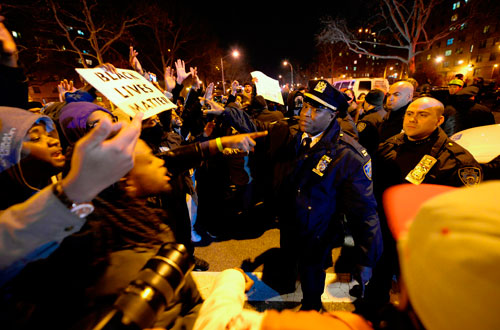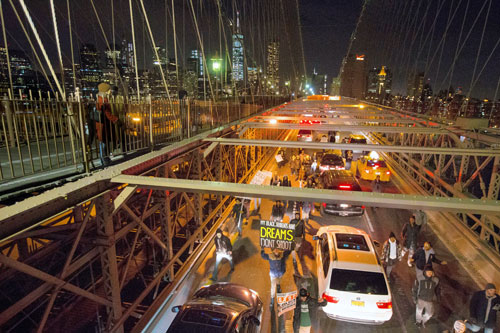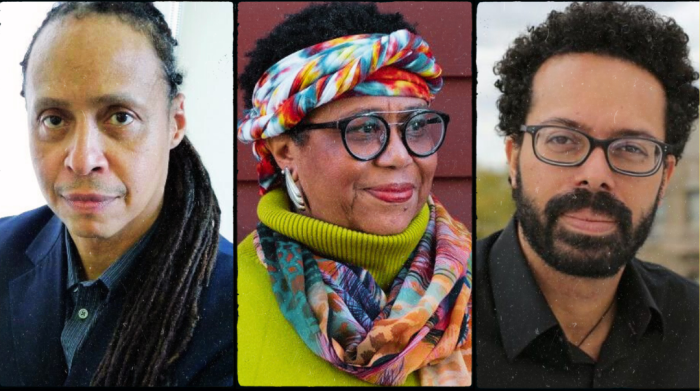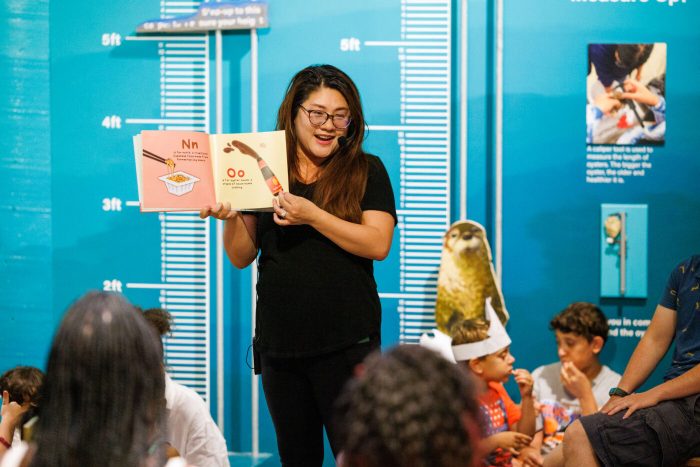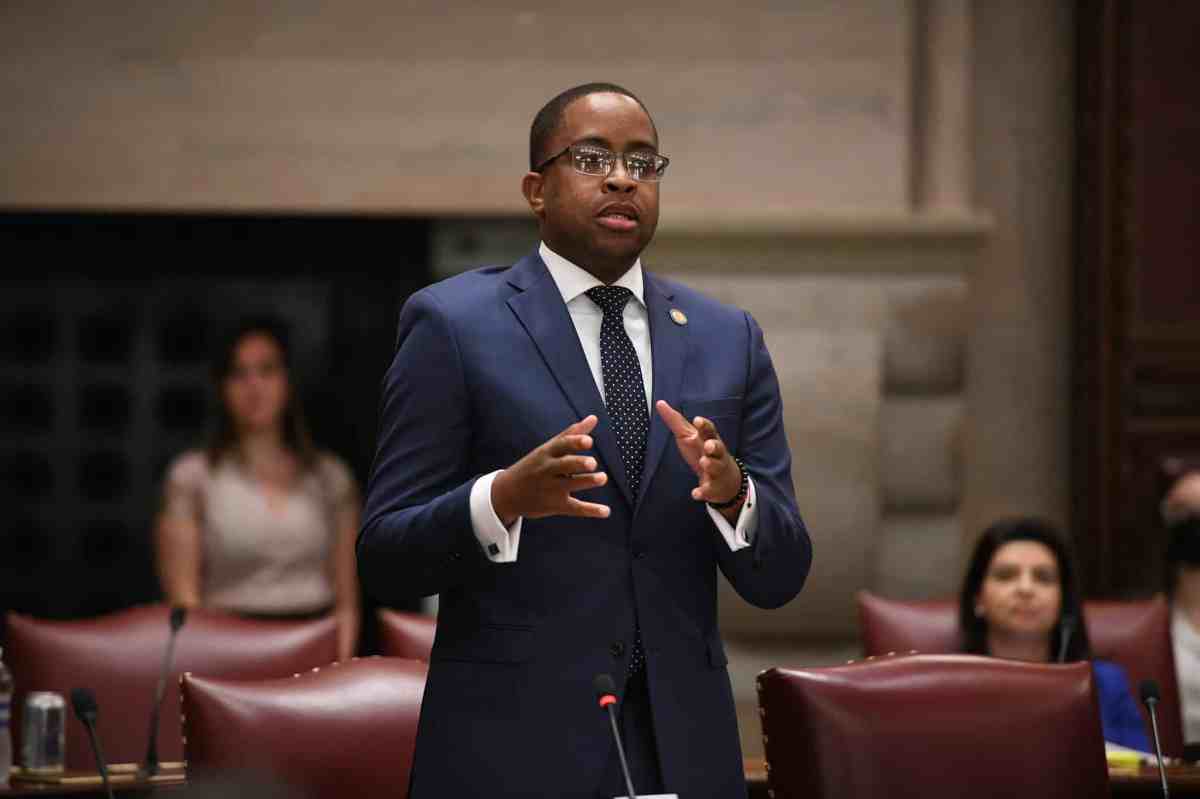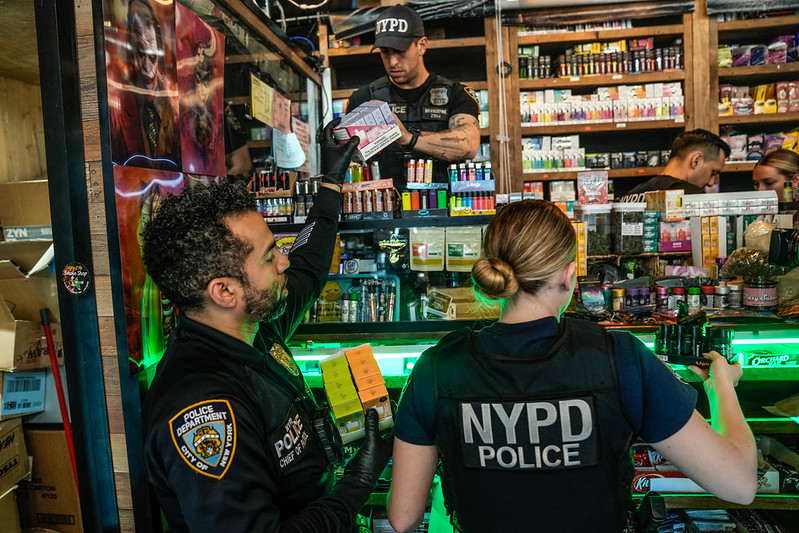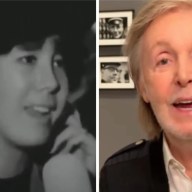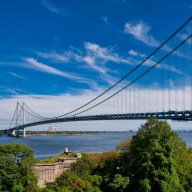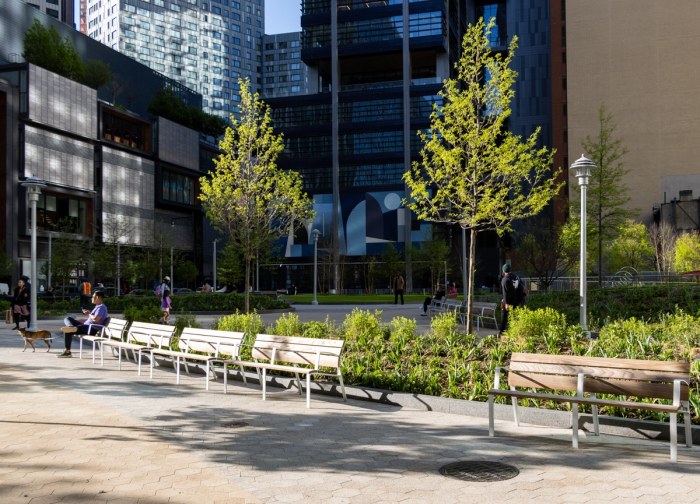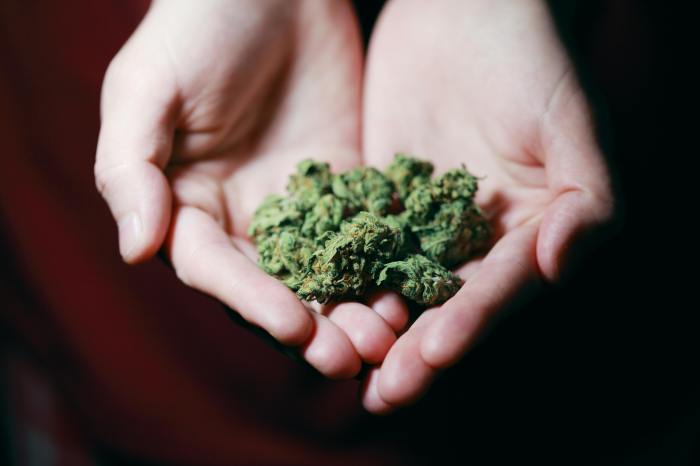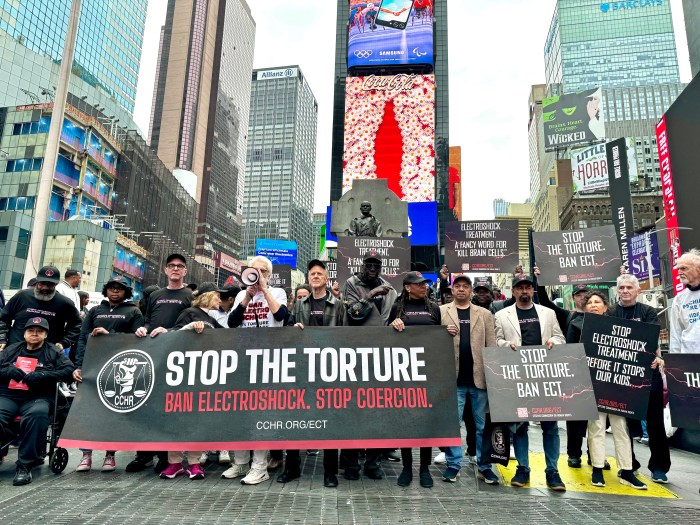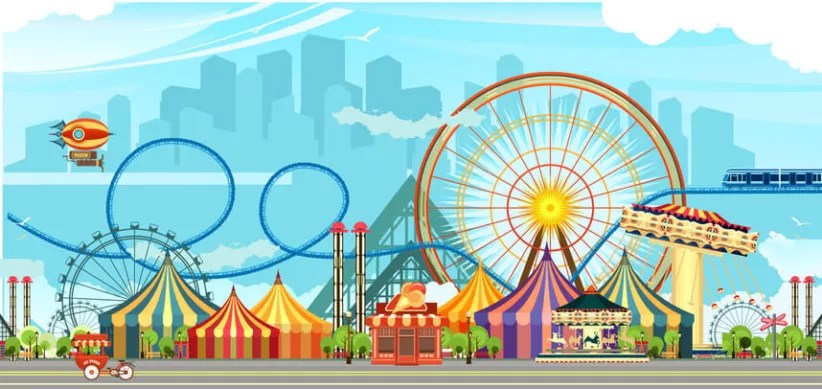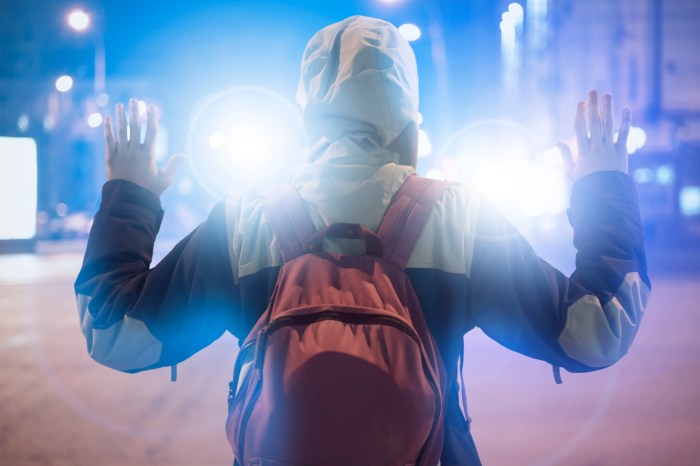The Brooklyn literary scene is circling the wagons around one of its own, the Crown Heights poet and professor accused of trying to attack police on the Brooklyn Bridge during an anti-police-brutality protest on Saturday night.
Cops cuffed Baruch College adjunct professor Eric Linsker on Sunday morning, following a melee on the walkway of the iconic span that two lieutenants say began when they saw Linsker try to throw a trash can onto police walking alongside marchers on the roadway below. The pair said they tried to apprehend Linsker, but that several of his comrades fought them off, punching and kicking them, and breaking one lieutenant’s nose, managing to wrestle Linsker out of his jacket so that he could flee. The scribe, who studied at Harvard University and the prestigious Iowa Writers’ Workshop, left his backpack behind, with marijuana, two brand-new hammers, a pill-bottle containing marijuana, and two forms of photo identification inside, officers wrote. The police report does not mention the bag containing a mask, which police officials touted in early press statements.
Literary movers and shakers who know Linsker say there is no way he set out to attack police officers.
“The charges of fanatic violence are against everything I know about Eric,” said Frank Guan, editor of the poetry magazine Prelude and contributor to Dumbo literary magazine n+1. “It seemed implausible, to be honest.”
The official NYPD account also states a protester handed an officer a third hammer and said, “They were throwing these.” Above the description of this event on a copy of the police report provided by Linsker’s lawyer, someone scrawled “BS.”
Linsker is now facing a bevy of charges, though the only actions the police report directly ascribes to him are moving the trash can and wriggling free.
Video shot on the bridge appears to show someone struggling with officers as several people in street clothes yank and shove them, at one point sending them tumbling onto the walkway. The struggle continues for nearly two minutes, until a man who resembles Linsker breaks free and he and a group of about 10 take off running.
In the aftermath of Linsker’s arrest, New York’s tabloids seized on a by turns sexually explicit and melancholy poem in the erotica magazine Adult that included the phrase “F— the police” three times.
Guan said Linsker may write with Marxism on his mind, but that doesn’t necessarily make him a revolutionary.
“Eric’s poetry is very politically oriented. It’s communist. That’s what it is mean to be,” he said. “I’m very skeptical when people use someone’s writing to project onto what someone may or may not have done.”
Guan said Linsker had grown increasingly distressed in the wake of the deaths of Eric Garner in Staten Island and Michael Brown in Ferguson, Missouri, and the grand jury decisions not to indict the officers in either killing.
Other Brooklyn writers weighed in supporting Linsker, echoing Guan’s disbelief and questioning the NYPD’s version of events. A judge released the embattled bard on Sunday without bail, despite his facing felony riot and assaulting an officer charges, which a senior editor of n+1 said lends credence to Linsker’s claim of innocence.
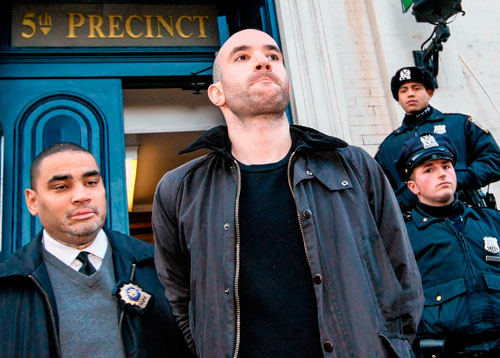
“Eric Linsker has been released on his own recognizance because he didn’t actually assault any police officers,” Keith Gessen tweeted.
Another writer, who is Vice Media’s resident anarchist analyst, scoffed at the official version of events.
“Welp, I’ve seen some cop nonsense, but listening to complaint versus Eric Linsker in court … wow,” Natasha Lennard wrote. “Even judge had to laugh. Cops, pigs, liars.”
Malcolm Harris, an editor at the culture magazine The New Inquiry who famously tricked the world into thinking that Radiohead was going to perform at Occupy Wall Street, agreed that the arraignment was remarkably low-key.
“Yeah it was cray,” he tweeted. “Chillest arraignment ever.”
The fight on the bridge was among the most violent moments in the three weeks of protests that have taken place nearly nightly following the Ferguson and Garner decisions, and officials made it clear they would not stand for officers being injured. A high-ranking NYPD official said in a statement that anti-police violence is where his department “draws the line.” Mayor DeBlasio, who has been making statements in cautious support of the protests, called for Linsker’s dismissal from Baruch College if he is found guilty.
“I think an attack on a police officer goes against the grain of our civilization and our society, I think it’s absolutely unacceptable,” he told reporters at an unrelated press conference, according to reports.
Linsker’s attorney rejected the notion that Linsker’s arrest reflects on the movement as a whole.
“This is an attempt to blame an innocent person for protests where there were a lot of very angry people,” Martin Stolar said. “You cannot undermine the validity of a protest by claiming an innocent man has destroyed its validity.”
Reports state that more than 25,000 people participated in Saturday’s march, the afternoon portion of which was permitted, unlike the nighttime demonstrations that have snarled traffic across Manhattan and Downtown Brooklyn since the Ferguson verdict. Thousands continued the Saturday demonstration into the evening and, following the bridge brawl, the march wound its way through Downtown and Crown Heights. The procession eventually made its way to the Louis H. Pink Houses in East New York, where a rookie police officer shot and killed unarmed Red Hook resident Akai Gurley last month.
